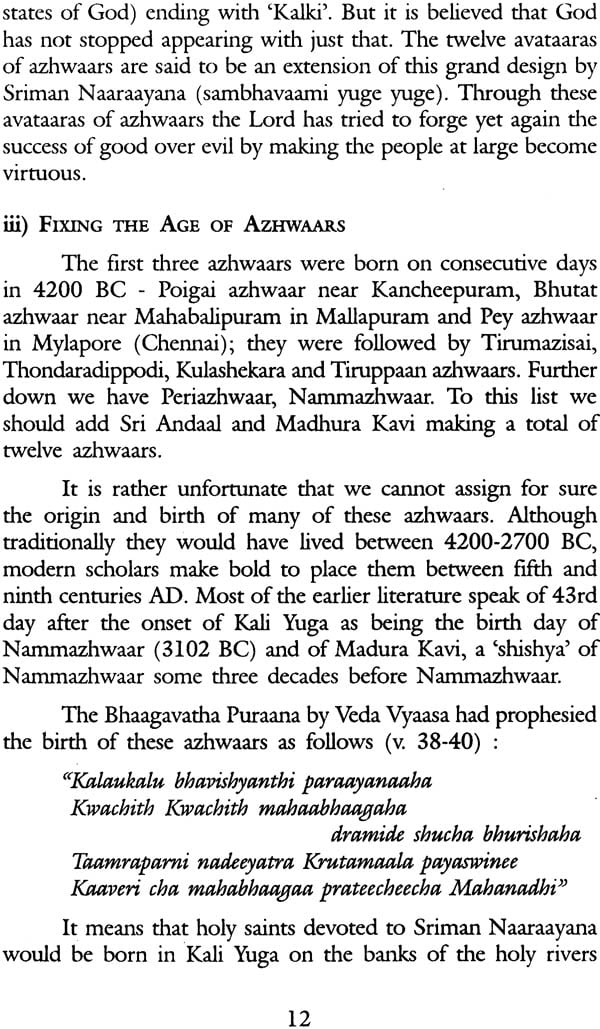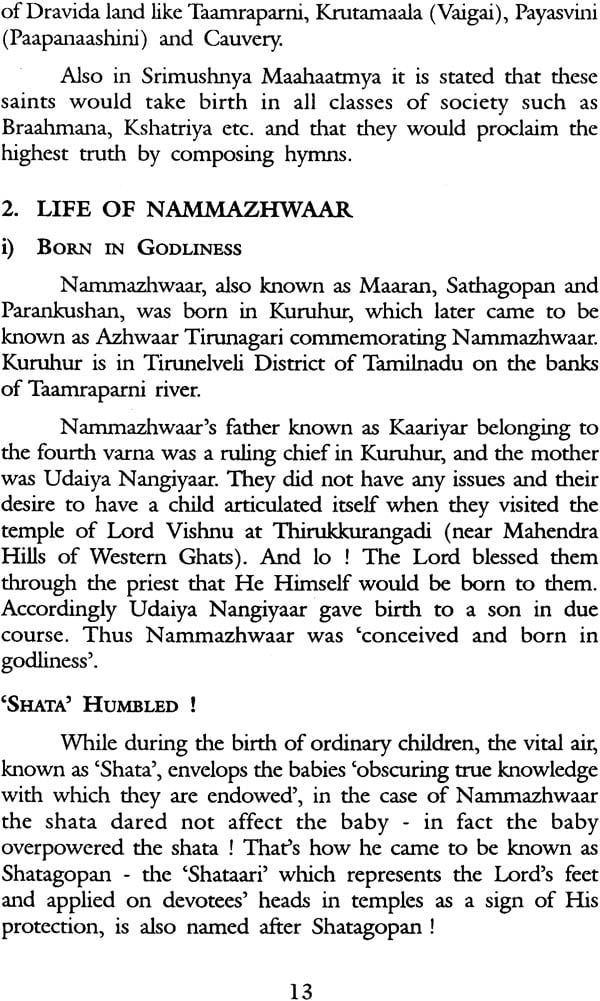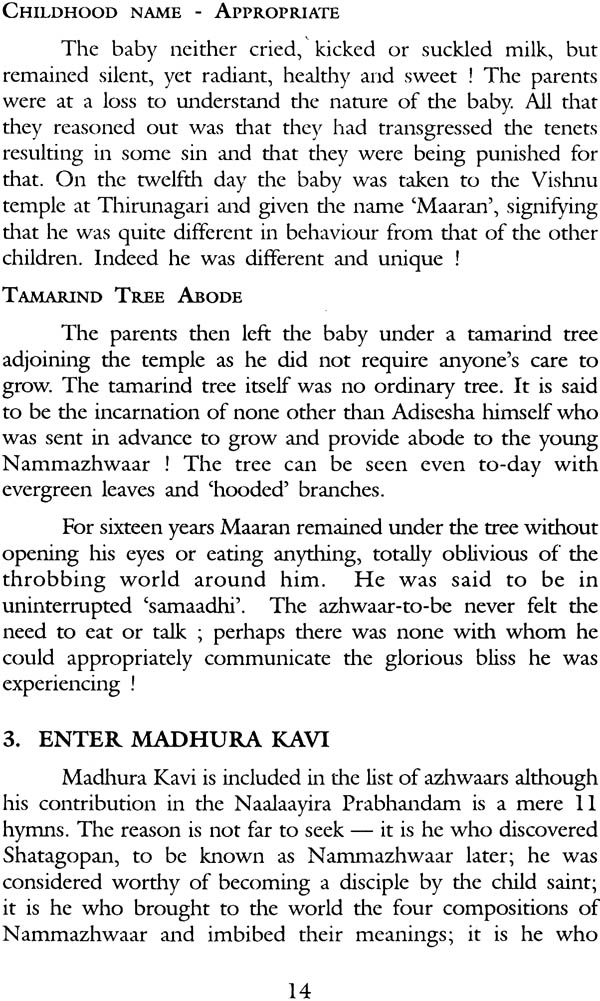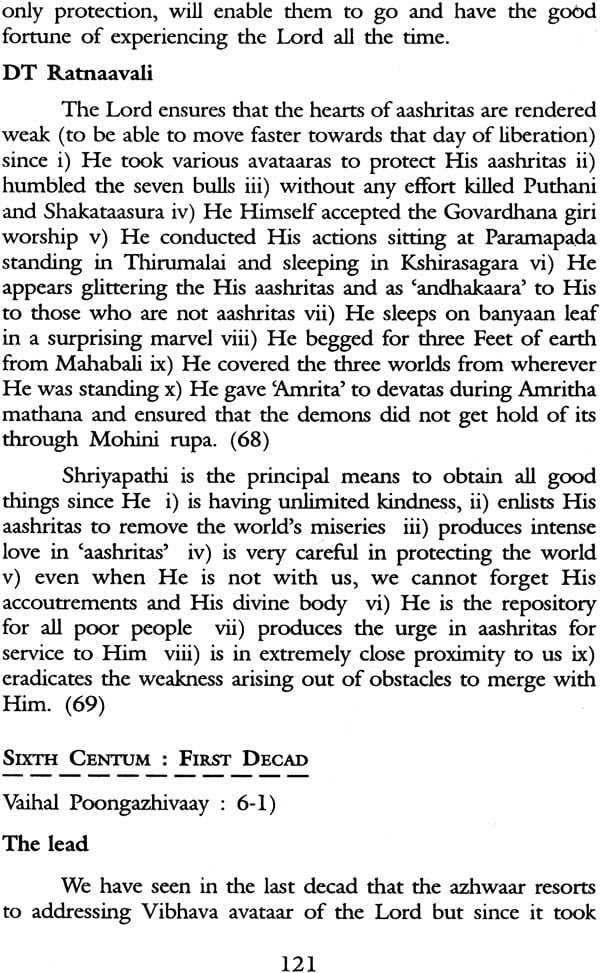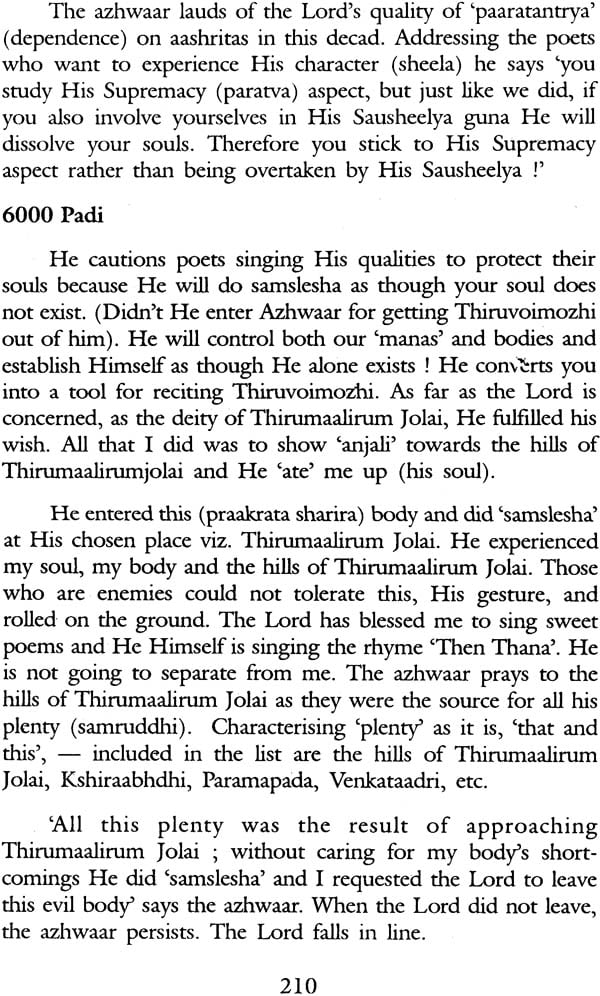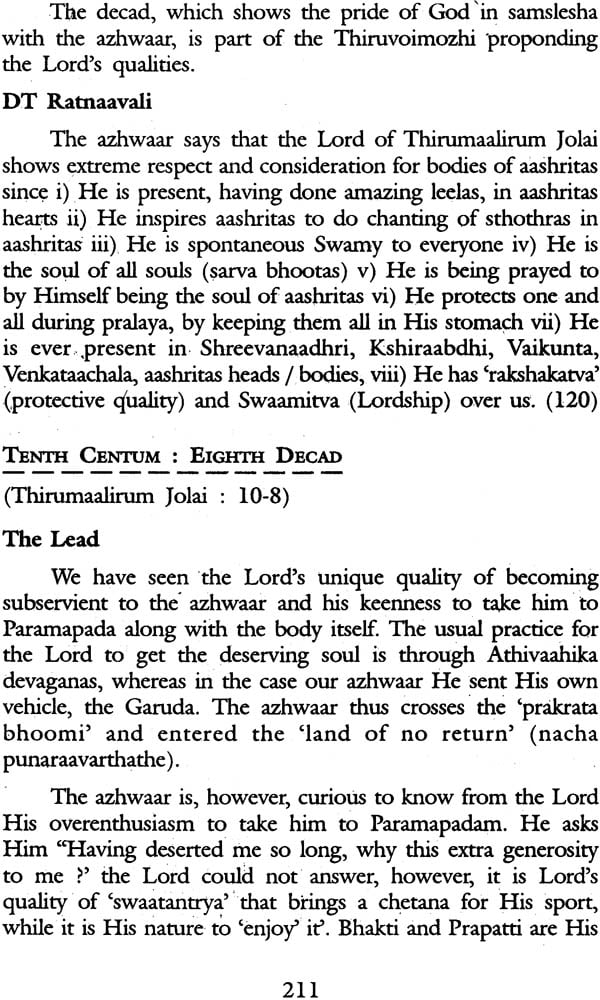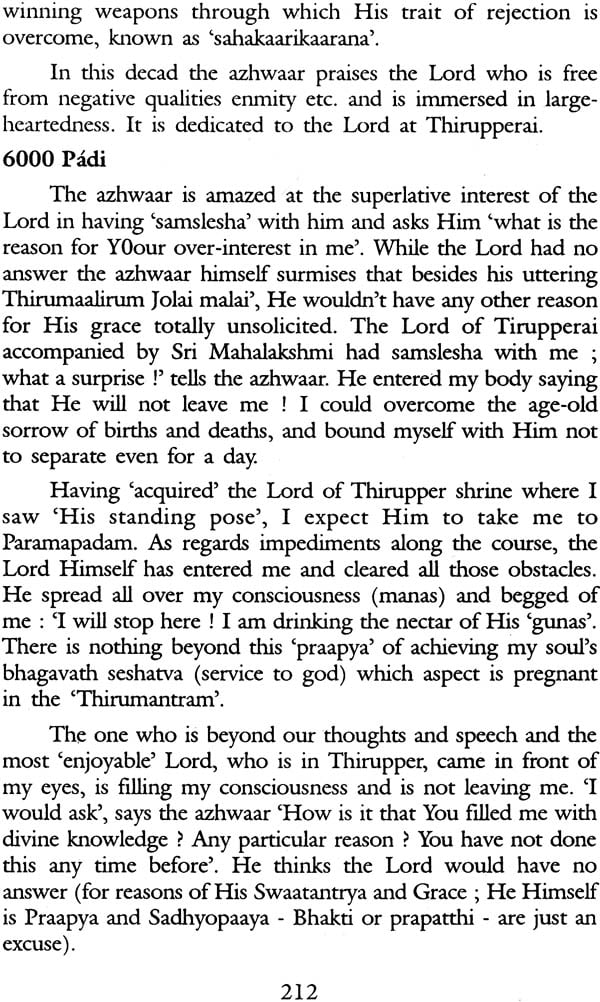
A Broad Introduction to Sri Nammazhwaar and Thiruvoimozhi (Incorporating Bhagavad Vishayam)
Book Specification
| Item Code: | NAM729 |
| Author: | K. R. Krishnaswami |
| Publisher: | A & K PRAKASHANA |
| Language: | English |
| Edition: | 2018 |
| Pages: | 222 |
| Cover: | Paperback |
| Other Details | 8.5 inch x 5.5 inch |
| Weight | 260 gm |
Book Description
Vedas and Upanishads have fashioned the lives of our people for millenniums. However these have not been accessible to the common masses. Moreover learning of Vedas called for a certain discipline and a guru-shishya relationship extending over a long period. A parallel stream of religious literature based on God-experience came into being and it is not much older than 4000 BC The literature known as Dravida Vedas or Naalayira Divya Prabhandam is a collection of spontaneous outpourings of a dozen mystics, known as 'azhwaars' who delved deep into divinity Originally the Prabhandam was in Tamil only, but transliterations are now available in Telugu, Kannada and Sanskrit. The Prabhandam is allowed to be learnt by all varnas as also women and 1S taught in temples and religious institutions.
The Divya Prabhandam comprises four sections 1) Mudalaayiram (the first thousand), ii) Peria Thirumozhi etc. (the second thousand), iii) Thirvoimozhi (the third thousand) and iv) Iyarpa (the fourth thousand). The present book is on the third thousand viz. Thiruvoimozhi and presents a) all aspects concerning the author, Nammazhwaar, and a general introduction to Thiruvoimozhi b) English translation of the most famous commentaries viz. 6000 Padi vyakyaanam in a summarised form and Dramidopanishad Taatparya Ratnaavali in full. Philosophic works like Thiruvoimozhi call for vyakyaanams to get an insight into the azhwaar's God- experience. As with my earlier works the choice of selecting the original is left to the reader ; the original is available in South Indian languages and Sanskrit. Someone has done a transliteration even in English.
Nammazhwaar has written four compositions and each one is compared to a particular Veda. The Thiruvoimozhi is compared to Saama Veda. This work brings out in all its holiness the Lord's Kalyaana gunas, the greatness of His various avataaras and the message of Prapatthi (self-surrender) as the easiest means to attain moksha. Study of Thiruvoimozhi and its recitation are said to bring great benefits and contribute to one's overall well-being.
| Acknowledgements | 4 | |
| Preface | 5 | |
| Chapter I | ||
| 1 | Prologue | 11 |
| 2 | Life of N ammazhwaar | 13 |
| 3 | Enter Madura Kavi | 14 |
| 4 | Naalaayira Divya Prabhandam | 17 |
| 5 | Nammazhwaar's Works | 20 |
| 6 | Arthapanchaka Jnaana | 21 |
| 7 | Shatagopa and Saariraka | 26 |
| 8 | Rahasya Traya in Thiruvoimozhi | 28 |
| 9 | Commentaries on Thiruvoimozhi | 29 |
| 10 | Ubhaya Vedanta | 31 |
| 11 | Thiruvoimozhi at a glance | 32 |
| 12 | Sadhana in Nammazhwaar's Works | 34 |
| 13 | Vibhava-avataaras in Thiruvoimozhi | 36 |
| 14 | The Shrines referred to in Thiruvoimozhi | 37 |
| Chapter II | ||
| Decad-wise Leads | 38 | |
| Decad-wise commentaries - | ||
| i) Pillan's 6000 Padi Vyakyaanam (summarised) | ||
| ii) Vedanta Desika's Dramidopanishad 'Iaatparya Ratnavali in full | ||
| Summing up | 221 | |
| References | 222 |

